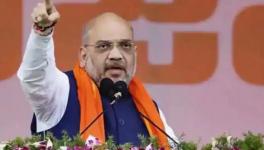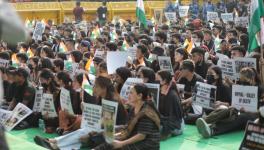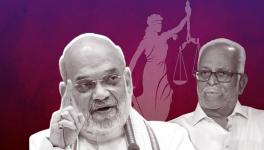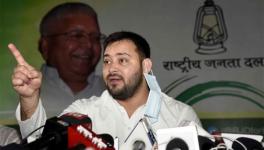Bill to Remove PM, CMs: All That is at Stake
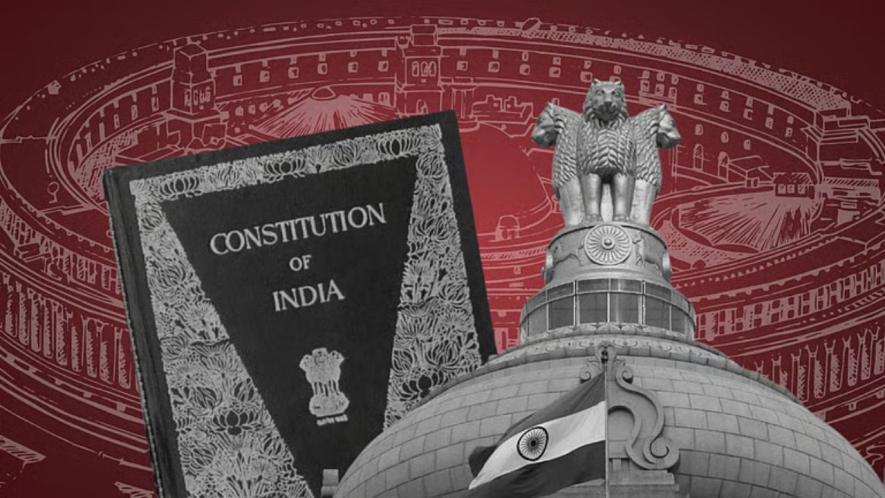
The Union home minister Amit Shah has tabled a Bill in Parliament titled “The Constitution (One Hundred and Thirtieth Amendment) Act, 2025,” which would enable the automatic cessation of the Prime Minister, Chief Minister, and other Ministers from their positions if they are detained for offenses punishable by five years or more, for 30 consecutive days.
At present, the Constitution of India has no specific provision prohibiting the Prime Minister, Chief Minister, or a Minister from holding office while in jail.
The Bill seeks to amend Articles 75, 164, and 239AA of the Constitution by adding sub-provisions to them.
The Bill claims that a Minister facing allegations of serious criminal offenses, arrested, and detained in custody may thwart or hinder the canons of constitutional morality and principles of good governance, ultimately diminishing the constitutional trust reposed by the people in them.
Article 75 pertains to the appointment of the Prime Minister and Union Ministers.
At present, the Constitution of India has no specific provision prohibiting the Prime Minister, Chief Minister, or a Minister from holding office while in jail.
Article 75(1) states that the Prime Minister shall be appointed by the President, and other Ministers shall be appointed by the President on the advice of the Prime Minister.
Article 75(2) states that Ministers shall hold office during the pleasure of the President.
Article 75(3) provides that the Council of Ministers shall be collectively responsible to the House of the People.
Article 75(4) deals with the oath of office for Ministers.
And, Article 75(5) provides that a Minister who, for any period of six consecutive months, is not a member of either House of Parliament shall cease to be a Minister at the expiration of that period.
Likewise, Article 164 deals with the appointment of the Chief Minister and Ministers to his council. Article 239AA pertains to the Union Territory of Delhi.
The amendment Bill seeks to insert Articles 75(5A), 164(4A), and 239AA(4A) to provide for the automatic cessation of the Prime Minister, Chief Minister, and Ministers from their positions on the 31st consecutive day of their detention for offenses punishable by five years or more.
The Bill in a nutshell
In a nutshell, the proposed amendment provides for the following three consequences:
-
A Minister arrested and in custody for 30 consecutive days for an offense punishable by five years or more will be removed from office by the President on the Prime Minister’s advice, which must be given by the 31st day of detention.
-
If the Prime Minister does not advise the President to remove the detained Minister by the 31st day, the Minister automatically ceases to hold office starting the next day.
-
Regarding the removal of the Prime Minister, the proposed Bill states that if the Prime Minister is arrested and detained for 30 consecutive days for an alleged offense punishable by five years or more, he must resign by the 31st day. If he does not resign, he will cease to be the Prime Minister the following day.
-
Importantly, the Bill clarifies that a Minister or the Prime Minister removed or resigned due to being in custody for 30 days will be eligible for reappointment to their position by the President after their release from custody.
The Bill provides similar consequences for the Chief Minister, the Council of Ministers of a State, and the Union Territory of Delhi.
Persecuting Opposition ministers?
The Bill comes in the backdrop of former Delhi Chief Minister Arvind Kejriwal refusing to resign from office despite being in jail for over five months in connection with the Delhi excise policy case.
While granting interim bail to Kejriwal, the Supreme Court had restrained him from visiting the secretariat.
Earlier a petition was filed in the Delhi High Court seeking Kejriwal’s removal from the post. Rejecting the petition, the High Court stated that it was his call, and there was no scope for judicial interference in such matters.
Delhi Minister Satyendar Jain, who was arrested by the Enforcement Directorate (‘ED’) on May 30, 2022, tendered his resignation on February 28, 2023. Manish Sisodia, who was Deputy Chief Minister of Delhi, was arrested by the CBI on February 26, 2023, but resigned on February 28, 2023.
Jharkhand Chief Minister Hemant Soren was arrested on January 31, 2024, by the ED in connection with a money laundering case. He resigned on the same day. Later, the High Court granted him bail, observing that there was no prima facie case against him.
Taking to X, senior advocate and Congress leader Abhishek Manu Singhvi said, “The best way to destabilize the opposition is to unleash biased central agencies to arrest opposition CMs and, despite being unable to defeat them electorally, remove them by arbitrary arrests.”
Under Article 368(2), a constitutional amendment requires a majority of not less than two-thirds of the members of that House present and voting. The NDA government at present does not have a two-thirds majority on its own.
“The best way to destabilize the opposition is to unleash biased central agencies to arrest opposition CMs and, despite being unable to defeat them electorally, remove them by arbitrary arrests,” said senior counsel A.M. Singhvi.
Does the Bill truly address criminality in politics?
Speaking to The Leaflet, Senior Advocate Mohan Katarki said that while the persecution of chief ministers belonging to the opposition is a reality, it cannot be addressed by claiming that a jailed minister or chief minister should continue in office.
He added that a jailed minister or chief minister should be deemed to have forfeited the pleasure of the Governor under Article 164(1) of the Constitution.
He further stated that the Bill does not enforce any political morality. Instead, it legitimises a jailed chief minister to continue in office for a month.
At present, Articles 102 and 191 of the Constitution deal with the disqualification of Members of Parliament and Members of Legislative Assemblies.
The grounds for disqualification include holding an office of profit, being of unsound mind, being an undischarged insolvent, not being a citizen of India, voluntarily acquiring the citizenship of a foreign State, or being disqualified by or under any law made by Parliament, including disqualification for defection under the Tenth Schedule.
The law referred to in Articles 102 and 191 is the Representation of the People Act, which provides that conviction for certain offenses results in disqualification from membership in the House.
Additionally, it stipulates disqualification if the conviction and sentence are for a term of not less than two years.
Courtesy: The Lreaflet
Get the latest reports & analysis with people's perspective on Protests, movements & deep analytical videos, discussions of the current affairs in your Telegram app. Subscribe to NewsClick's Telegram channel & get Real-Time updates on stories, as they get published on our website.












